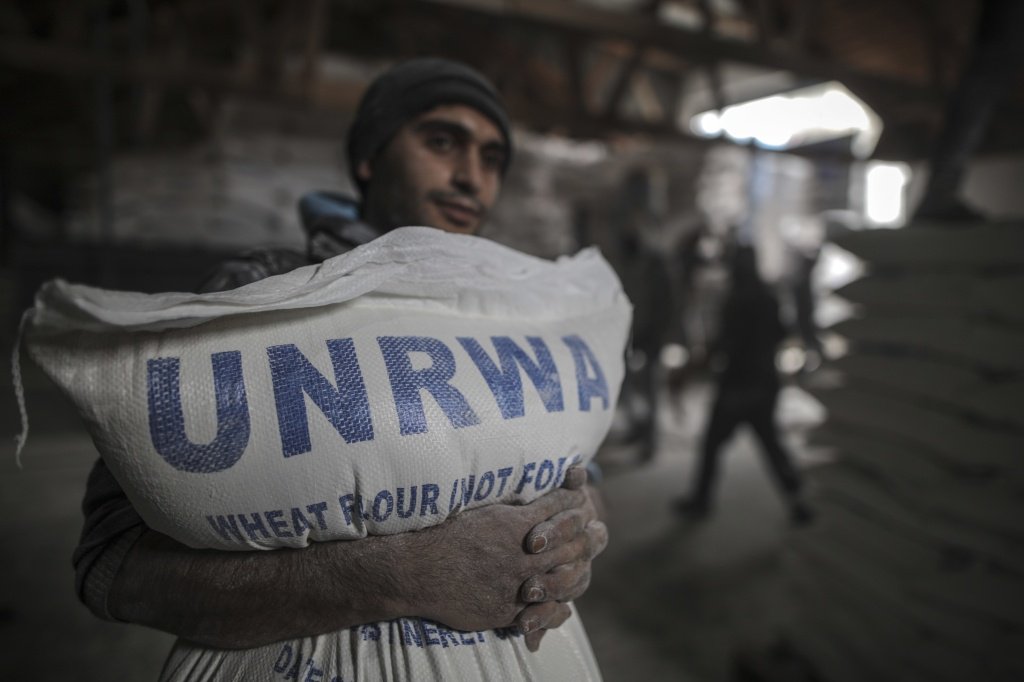

The United Nations Relief and Works Agency for Palestine Refugees in the Near East (UNRWA) faces a major challenge in upholding its mandate and preserving key services such as education and health care for Palestinian refugees. On Jan 16, 2018, the US Government announced a contribution of $60 million for 2018 so far, in support of UNRWA’s efforts to keep our schools open, health clinics running, and emergency food and cash distribution systems functioning. Although important, this funding is dramatically below past levels. The total US contribution in 2017 was more than $350 million. Funding UNRWA or any humanitarian agency is at the discretion of any sovereign member state of the UN. At the same time, given the long and trusted relationship between the USA and UNRWA, this reduced contribution puts the health gains experienced by Palestinian refugees, and the largest humanitarian operation in the Middle East, at risk.
UNRWA has a history of unwavering commitment to refugee health in the region amid changing political circumstances, barriers, and conflict. We provide health and protection services to over 5 million Palestinian refugees. UNRWA employs more than 3200 health staff in 143 primary health facilities, and provides medical reimbursements annually to more than 100 000 refugees for their medical care at hospitals in the Gaza Strip, Jordan, Lebanon, Syria, and the West Bank. Roughly 53% of the funding requirements for UNRWA’s humanitarian intervention activities in the occupied Palestinian territory are related to health alone, including health care, food security, shelter, water and sanitation, and education.
UNRWA has made extraordinary health gains for the refugee population that we serve by providing more than 9 million patient visits each year, including primary health care, tertiary and secondary care, and health education. As Palestinians experience a distinct demographic shift in which they are living longer and facing new health vulnerabilities from chronic diseases, UNRWA has made great strides in adapting to these changing health needs. Our health services support refugees through innovative strategies for preventive medicine and health education, e-health initiatives, and family health services. Our staff members care for more than 250 000 patients with high blood pressure and diabetes annually, and assist with almost 100 000 pregnancies and deliveries each year.We have reduced the average infant mortality rate from 160 deaths per 1000 livebirths in the 1960s to less than 25 deaths per 1000 livebirths in the 2000s. UNRWA clinics are the main source of primary health care for Palestinian refugees in all five field operations. Despite these accomplishments, our work is far from over, and these health gains and successes are facing a serious threat due to the current funding crisis.
The Sustainable Development Goals (SDGs) aim to “end poverty, protect the planet, and ensure prosperity for all”. These goals include SDG 16 that asserts the need for peace, justice, and strong institutions. SDG 3 on the need for good health and wellbeing is intricately linked to peace and justice. Providing essential health services and supporting institutions that protect refugee health services is indispensable in achieving the SDGs. UNRWA’s commitment to the SDGs depends on global support for our medical services and the inherent link between peace and public health.
As we have since the beginning, UNRWA will continue to work with absolute determination to provide life-saving medical services to Palestinian refugees, but we need the support of the international community to maintain our humanitarian operations. In the wake of these new challenges, we are calling on UN member states and partners to uphold the human rights and future of Palestinian refugees to rally support and establish new funding alliances to preserve the dignity, health status, and the future of Palestinian children and families.
We are calling on the good will of people all over the world to stand with us in solidarity and help #FundUNRWA to protect human welfare and dignity. We are launching a global campaign to keep our operations open in 2018 and beyond. Our determination and commitment to millions of refugees motivates us to establish new pathways in the face of adversity. Through this campaign, we aim to maintain our primary health-care operations, education, food assistance, water and sanitation, and protection services so that the welfare of a disadvantaged population does not suffer at the hands of politics.
Humanitarian aid is guided by the principles of humanity, neutrality, impartiality, and independence. These principles are not only fundamental to upholding human rights for all people, but also to protecting the health of the world’s most vulnerable and to ensure that they can live with dignity irrespective of political circumstances. UNRWA’s mandate to preserve key services for Palestinian refugees is an expression of the international commitment to these principles. Now more than ever, refugees in the Gaza Strip, Jordan, Lebanon, Syria, and the West Bank need the support of the international community to live with dignity. There is no health without justice, and there is no justice without peace.
Akihiro Seita is the director of the Health Department at UNRWA Heaquarters. Amelia Goldsmith is an intern at UNRWA Health Department, Majed Hababeh and Yousef Shahin are employees of UNRWA Health Department.

